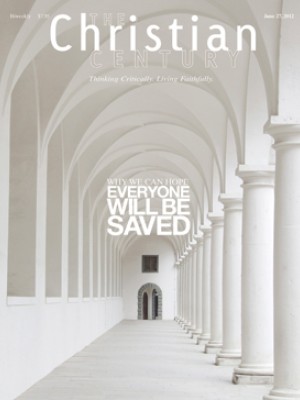Liberty imperiled? The Catholic bishops' argument is weak

The U.S. Catholic bishops have designated the two weeks leading up to July 4 as a “fortnight of freedom” and urged Catholics to rally for religious liberty—a liberty that is, they say, now “under attack,” especially from the Obama administration.
In their statement “Our First, Most Cherished Liberty,” the bishops offer seven “concrete examples” of religious liberty being undermined. Some of the examples are dubious, however, and touch on cases of varied seriousness and relevance. For example, the bishops cite a 2009 proposal in the Connecticut legislature that sought, in the wake of a case of fraud at a Catholic parish, to provide government oversight of parish finances. The bishops fail to mention that this proposal went nowhere in the legislature and was denounced on all sides as a clear violation of the First Amendment. The actual threat posed to religious liberty was minimal.
Read our latest issue or browse back issues.
The galvanizing issue for the bishops, of course, is the Obama administration’s requirement under the Affordable Care Act that coverage for contraceptives be included in all health insurance plans. For months now, the bishops have been asking that exemptions to that rule be given not only to churches but to religious schools, hospitals and social service agencies. Otherwise, they argue, Catholic institutions will be forced to pay, through insurance premiums, for a medical service condemned by Catholic teaching.
We earlier supported the bishops’ call for an expanded exemption (“Reasonable exception,” February 22). The administration responded to the bishops by declaring that the Catholic agencies in question would not have to pay for contraceptive coverage; that cost would be absorbed by insurance companies. This position both promoted the goal of full access to contraception and honored the bishops’ conviction that Catholic agencies should not have to pay for it.
The bishops rejected this approach, however, and never bothered to make a proposal of their own. This stance suggests that their concern all along was more about limiting access to contraception than about who foots the bill. That suspicion was confirmed when the bishops turned from arguing for an exemption from the contraception mandate to arguing for the repeal of the mandate itself, claiming that it’s a violation of religious liberty.
It isn’t. Under the First Amendment, religious believers have often been granted exemptions from general laws, such as laws requiring service in the military, or school attendance, or children’s vaccinations. But the logic of accommodation on religious grounds has never meant that the law in question—requiring military service, say, or vaccinations—is itself a violation of religious liberty and must be repealed. That is the argument that the bishops are trying to make, but it is muddled and unconvincing. As we wrote several months ago: the claims of religious consciences must be respected, but they are not a trump card that wins every argument in public policy.






